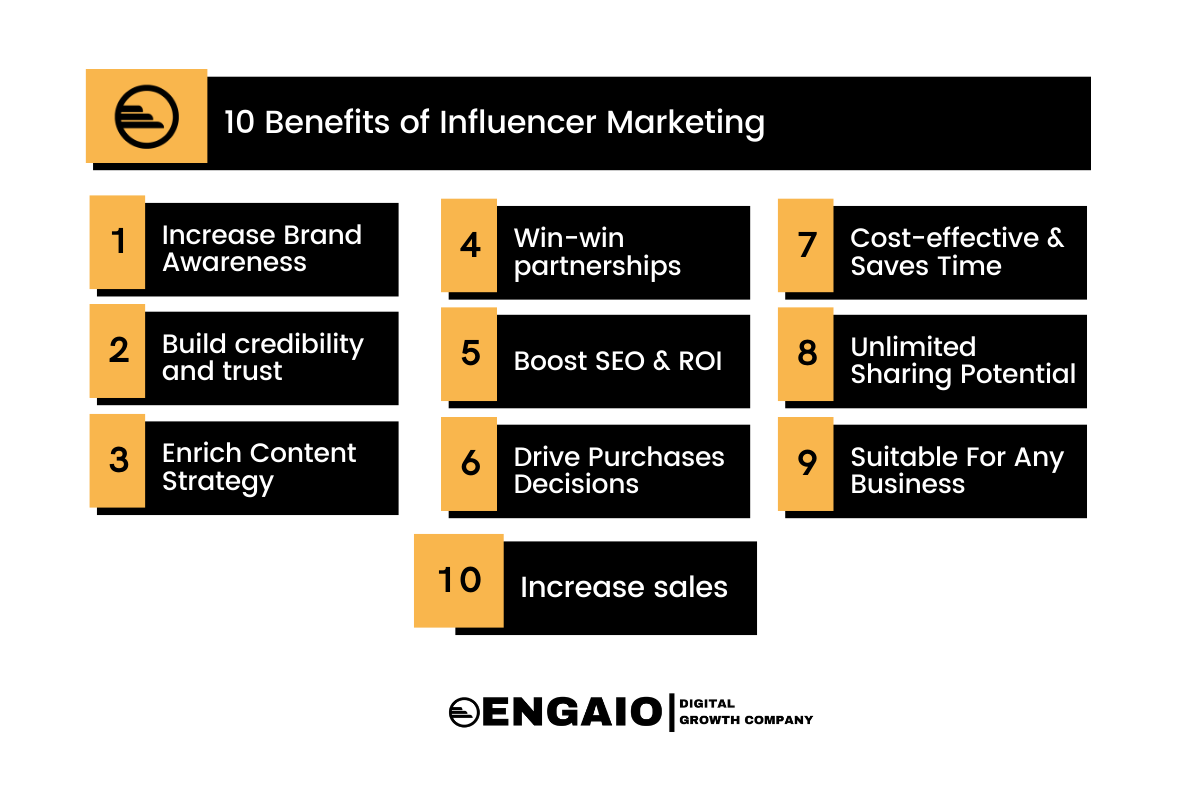The Role of Influencers in Brand Promotion

In this era of digital marketing, influencers have become an integral part of brand promotion strategies. With the rise of social media platforms, influencers have gained immense popularity and credibility among their followers. As a result, brands are increasingly leveraging their reach and influence to promote their products and services. This article will delve into the role of influencers in brand promotion, highlighting the benefits, challenges, and key considerations for businesses.
The Power of Influencer Marketing
Influencer marketing has proven to be an effective way for brands to connect with their target audience. By collaborating with influencers, brands gain access to a dedicated and engaged fan base, which can significantly impact their brand visibility, credibility, and ultimately, sales. The trust and authenticity that influencers have built with their followers is leveraged by brands to generate brand awareness and drive consumer engagement.
Building Brand Awareness
One of the primary roles of influencers is to create brand awareness. By sharing their personal experiences and opinions about a brand, influencers can introduce products or services to their followers in an organic and relatable way. This type of promotion often leads to increased brand visibility and recognition among a broader audience.
Driving Consumer Engagement
Influencers excel in driving consumer engagement due to their ability to establish genuine connections with their followers. By actively engaging with their audience through comments, likes, and shares, influencers create a sense of community and foster brand loyalty. This high level of engagement can greatly benefit brands by encouraging customer feedback, reviews, and user-generated content, ultimately influencing purchasing decisions.
Enhancing Brand Credibility and Trust
Influencers are seen as authorities in their respective niches, and their word carries significant weight in the eyes of their followers. By associating their brand with an influencer, businesses can enhance their credibility and trust amongst the target audience. The authenticity of influencers’ endorsements makes consumers feel more confident and reassured in their purchasing decisions.
Challenges in Influencer Marketing
While influencer marketing offers many advantages, it is not without its challenges. One of the main challenges that brands face is finding the right influencers who align with their brand values, target audience, and marketing goals. Conducting thorough research to ensure the influencer’s audience demographics, engagement rates, and content quality match the brand’s requirements is crucial to achieving successful partnerships.
Another challenge is maintaining authenticity and transparency. Influencers should clearly disclose when they are endorsing a brand and that their content is sponsored. Failure to do so may lead to a loss of trust and credibility not only for the influencer but also for the brand. Striking a balance between authentic content and promotional messaging is key to avoiding any negative impact on the brand’s reputation.
Key Considerations for Businesses
When implementing influencer marketing strategies, businesses should consider a few key factors. Firstly, understanding their target audience and identifying the platforms where they are most active is crucial when selecting influencers. Different platforms cater to different demographics, so it is essential to choose the right influencers accordingly.
Building long-term relationships with influencers is also beneficial. Instead of one-off collaborations, continuous partnerships allow influencers to develop a deeper understanding of the brand, resulting in more authentic and credible promotions. Additionally, providing influencers with creative freedom in their content creation process can lead to more genuine and engaging promotions, resonating better with their followers.
Conclusion
Influencer marketing has emerged as a powerful tool for brand promotion in the tech niche and beyond. With their ability to create brand awareness, drive consumer engagement, and enhance brand credibility, influencers help businesses reach a broader audience and increase their market share. However, navigating the challenges and considering key factors are essential to ensuring successful collaborations. By leveraging the reach and influence of influencers, brands can establish a strong online presence and captivate the hearts and minds of their target customers.